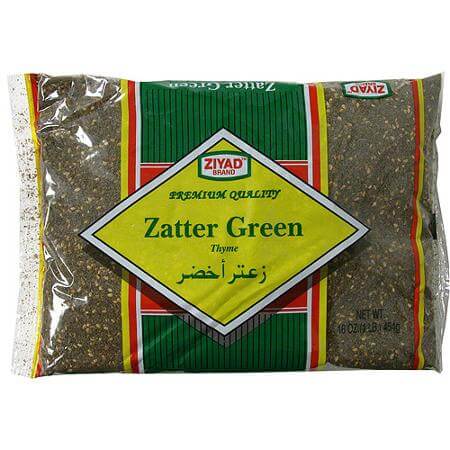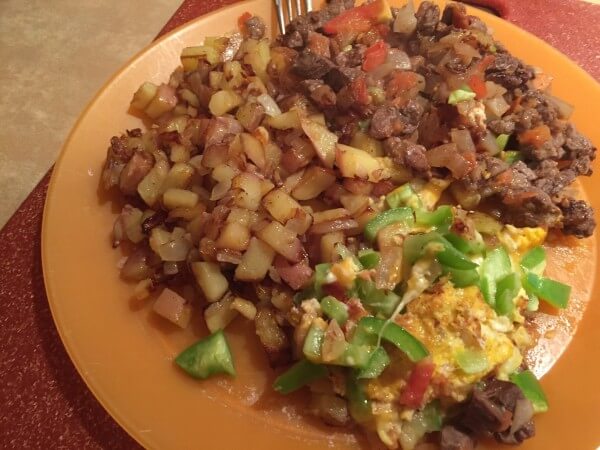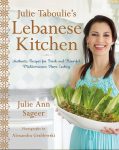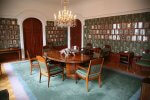Long before we had technology to chill food, the early bedouins and family clans in Palestine, Jordan and the Levant including Syria and Lebanon, learned to cook using common sense. Lamb and goat were small animals and turned out to be a great meat source. Cattle would have been wasted. A breakfast was always an important meal but much has changed over the generations
By Ray Hanania

covering Chicago
City Hall
(1976-1992)
Long before we had technology to chill food, the early bedouins and clans in Palestine, Jordan and the Levant including Syria and Lebanon, learned to cook using common sense.
Lamb and goat were small animals and turned out to be a great meat sources for Arab families living without electricity and by candlelight. Cattle would have been wasted as the animal was too large and costly and took a long time to mature compared to lamb or goats.
A breakfast was always an important meal but much has changed over the generations.
A lot is focused on the main dinner meal during the holiday season. But you can also have a fabulous meal for breakfast. Below is a recipe for a typical Arabian Lamb Skillet that you can enjoy with little effort, but let me tell you about life as it was passed down from generation to generation.
Vegetables were a large part of our diet. Our ancestors would dry the vegetables to make them last longer. Although pioneers in the new world like America turned to smoking meats and preserving slabs stacked on top of each other using lots of salt and brine, Arabs had smaller animals to cook like Lamb and Goats.
The meat the animals produced was still abundant, and often too much for what we think of as a typical family of four or five, which is one reason why lamb and goat meat was saved for holidays and celebrations because they provided enough meat to feed more than just the immediate family. The meals fed the family, relatives and even neighbors, who were probably distant relatives in the Arab system of clans and small villages.

A bedouin breakfast usually consisted of oil from crushed olives that could be stored until used, freshly baked bread from wheat and flour, and mainly barley. The bread was flattened to make it easier to cook and to preserve. Cooked, flat pita bread lasted longer than the large loaves of bread cooked in America. They would also have dates, and they would pick and crush a teal green shrub called Za’atar.
The Za’atar (Zatter) shrub is picked, crushed and then blended with spices and also sesame seeds, sumac and salt. The Za’atar was used for everything from a dip to a tea.
In Egypt, a popular breakfast meal is Fooll Mudammes with is made from crushed Fava Beans mixed with hot olive oil, spices and herbs. It’s served in a small bowl and eaten with pita bread slices dipped in to form a “spoon”.
Goat Cheese (labneh) was made from goat milk and hung from white cloth until it formed large balls that were then spiced, seasoned and then stored in olive oil. It could be eaten as a thick liquid, as a labneh dip or sauce, or prepared into cheese balls or clusters.
But occasionally, a wealthy family would eat meat for breakfast. They could afford to slaughter a lamb for the family meal that might last over two days.
Today, the foods of the Arab Middle East region, based in extra virgin olive oil, is considered one of the healthiest eating lifestyles, called the Mediterranean Diet.

Here is a recipe for lamb skillet which mixes the traditions of the bedouins with those of our increasing technologically dependent lives.
Ingredients:
2 pounds of fresh lamb leg (You can use a beef filet if you prefer)
4 eggs
1 onion
4 potatoes
1 tomato
Sultan Extra Virgin Olive Oil
Spices including cumin, sumac, crushed za’atar, salt and pepper.
1 large garlic clove
Cheese
Instructions
Dice the onions, tomatoes, green peppers, potatoes, and grate the cheese. Save the green peppers on the side. They will be added to the eggs when ready to serve.
Dice the lamb into small pieces about 3/4 of an inch in length and 1/4 inch wide. You don’t have to measure them but you want them to be small slices.
Place 2 Tablespoons of Olive Oil in a frying pan, heat and then add the diced potatoes. Fry slowly as you prepare the egg and meat skillet. Add spices to preference. Za’atar is one that I add as a flavoring.
While the diced potatoes are frying, fry the diced onions and tomatoes in 2 Tablespoons of olive oil for about 5 minutes, mixing frequently. Lower the flame when the meat looks perfect.
Keep stirring the potatoes to brown.
In another frying pan, add 1 tablespoon of olive oil, and then crack and mix four eggs into an omelet. Once the consistency is strong, cover it in cheese. Just before folding the omelet, add the uncooked diced green peppers.
If you timed everything, starting the potatoes first (they take the longest to cook), you should be able to serve a delicious lamb skillet.
Sahtein!


- Israelisnipers shooting and killing hospital workers in Gaza - December 11, 2023
- CAIR Condemns Israeli Executions of Wounded, Unarmed Palestinian in West Bank - December 11, 2023
- Arab and Muslim American voters face a “simple choice” between Biden’s inhumanity and Trump’s edgy politics - December 9, 2023
























